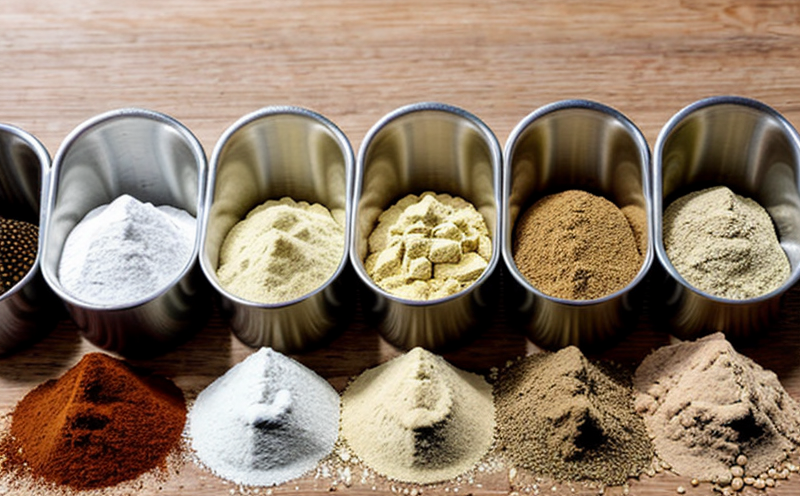ISO 22308 Vitamin K Detection in Poultry Premixes
The detection of vitamin K in poultry premixes is a critical aspect of ensuring the nutritional integrity and safety of feed formulations. ISO 22308 establishes a standardized method for quantifying vitamin K, which includes both K1 (phylloquinone) and K2 (menaquinones), essential for proper blood clotting and bone metabolism in poultry.
Feed additives play a pivotal role in enhancing the health and productivity of poultry. Among these, vitamins are fundamental, especially vitamin K, which is naturally synthesized by gut flora but can be supplemented in premixes to ensure consistent levels across different batches. The accurate quantification of vitamin K helps in maintaining optimal performance, reducing the risk of nutritional deficiencies that could lead to disease or suboptimal growth.
The testing process outlined in ISO 22308 involves several key steps: sample preparation, extraction, and chromatographic analysis. Initially, samples are prepared by homogenizing feed premixes and extracting vitamin K using a suitable organic solvent. The extracted compounds are then subjected to high-performance liquid chromatography (HPLC) for separation and quantification.
The method is sensitive enough to detect even trace amounts of vitamin K, ensuring that the final product meets the required specifications as defined by international standards such as ISO 22308. This precision is crucial in maintaining the efficacy of feed additives while minimizing potential health risks associated with over- or under-nutrition.
In addition to quantification, this test also provides insights into the stability and bioavailability of vitamin K in different formulations. Understanding these aspects helps in optimizing feed formulations for specific poultry breeds and their nutritional needs. The data obtained can be used by R&D engineers to design more efficient and effective feed additives.
Quality managers and compliance officers benefit from this standardized testing as it ensures that all feed products comply with regulatory requirements, thus safeguarding the health of poultry and maintaining the reputation of food producers. Procurement teams also find value in this service as they can rely on consistent quality across different suppliers.
Eurolab Advantages
- State-of-the-art laboratory equipment and instrumentation for precise quantification of vitamin K.
- Experienced technicians with expertise in feed additive analysis and nutritional science.
- A commitment to adhering strictly to ISO 22308 standards ensuring reliable results every time.
- Comprehensive reporting services that provide detailed insights into the nutritional profile of poultry premixes.
We offer a range of additional services tailored to meet your specific requirements, including custom formulations and performance evaluations. Our team is dedicated to providing you with accurate, reliable, and timely results, ensuring that your feed additives always meet the highest quality standards.
Why Choose This Test
- Ensures compliance with international standards such as ISO 22308.
- Precise quantification of vitamin K in poultry premixes, ensuring optimal nutritional content.
- Reduces the risk of suboptimal growth and associated health issues in poultry.
- Supports R&D efforts by providing insights into the stability and bioavailability of feed additives.
- Contributes to maintaining the reputation of food producers through consistent quality assurance.
Use Cases and Application Examples
In the poultry industry, vitamin K plays a crucial role in supporting essential biological functions. Ensuring accurate detection helps in formulating feeds that meet specific nutritional requirements for different stages of growth and varying environmental conditions.
- Young Poults: Vitamin K is vital during this critical phase as it aids in bone development and supports overall health to prevent early mortality.
- Laying Hens: Ensuring adequate vitamin K levels can enhance egg quality, leading to higher productivity and profitability for farmers.
- Cooking Poults: Proper nutrition during this stage is crucial as it affects meat quality and flavor.
The test results from ISO 22308 play a significant role in the development of new feed formulations. By accurately detecting vitamin K levels, researchers can identify optimal dosages that maximize health benefits without causing any adverse effects.
Compliance with international standards also ensures that poultry products meet export requirements, thereby expanding market reach and opportunities for food producers worldwide.





